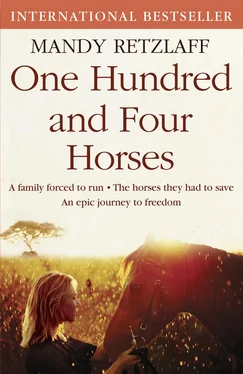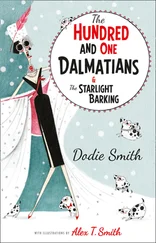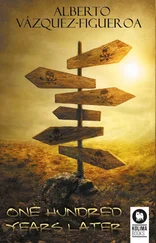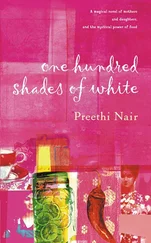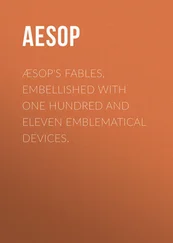Everything was about to change—for our families and our horses.
In the early evening dark, Pat sat outside Crofton, working through the books in which we inscribed the farm’s history: its seasons and yields, our cropping loans, the details of the workers who had stayed with us through the years. His head was buried in the books when he heard footsteps, a soft knocking at the door. He looked up to see Charles, one of our drivers, approach.
“Boss?”
“Charles …”
“It’s about tomorrow, boss.”
Pat shuffled back. “What’s tomorrow?”
“I was hoping we can use the tractor tomorrow. To take everybody to the voting.”
“Voting?”
Charles nodded, and as Pat questioned him further, things began to stir in the back of his mind, half-forgotten conversations and fragments of news items. Only a few months before, in November 1999, Mugabe’s government had published the draft of a new constitution, which would be ratified in an upcoming referendum. The draft constitution effectively rewrote the constitution first created when Zimbabwe achieved independence, through the Lancaster House Agreement of 1979. It would, it dawned on Pat as Charles continued to speak, give Mugabe the right to serve an unlimited time in office, and even the right to appoint his own successor. What hit even closer to home, however, was the idea that, under the rules of the new constitution, the government would be able to forcibly acquire lands, even those that the government itself had sold since independence, without the owners having any legal right to be compensated for their loss. There was still inequality in the way in which land was held in Zimbabwe, even these twenty years after the coming of independence and the end of old Rhodesia, and we had always known something had to change. Yet, we had bought our farm in good faith; its sale had been sanctioned by the very same government whose efforts now seemed to threaten to take it away. I had the horrible feeling that the land reform program, which was not being handled properly by the government, would now be used by Mugabe for his own political gains.
In the weeks and months to come, Pat and I would think long and hard about this moment. That we had not properly recognized the importance of the upcoming referendum would one day come to sadden us. Were we really living so separately, out here in the corner of Africa we had pioneered for ourselves, that we had blinded ourselves to the path our country was traveling?
After Pat had promised Charles the use of the farm vehicles to ship all our workers off to vote, he found me at the back of the farmhouse, wearily preparing crates of tomatoes.
“What is it?” I asked.
“Did you know,” Pat began, “about this referendum?”
I knew about it, of course, but not in the same way as I knew about how low the water table was, or how weak our yields had been in the last harvest, or how quickly the bank interest was gathering on our cropping loan. The referendum was a thing that was happening somewhere out there . There were problems enough at Crofton to dominate the day.
“It’s tomorrow,” said Pat. “A whole new constitution.”
When he put it like that, it seemed suddenly to loom a lot larger in my mind. Behind us, in the darkness, the horses nickered in their stalls.
Things had become increasingly unstable in Zimbabwe over the past several years. We had thought things might improve once our drought years were over, but instead they seemed to get worse. Mugabe had been supporting the war in the Democratic Republic of Congo, ostensibly sending troops to support the president there, but really hoping to be able to exploit the DRC’s mineral deposits in return—and, in response, the World Bank and various European countries had suspended all funding with Zimbabwe and placed various embargoes upon us. All this contributed to an economy rife with unrest—but nothing more so than when the government, under pressure from the Zimbabwe National Liberation War Veterans’ Association, led by the aptly named Chenjerai “Hitler” Hunzvi, agreed to hand out massive payouts and pensions to all the association’s fifty thousand members. The Zimbabwean dollar had plummeted in value; inflation had soared, with a loaf of bread leaping in price from seventy cents to more than ten dollars; and the first voices of political opposition had begun to be heard.
“Are you worried?” I asked.
A wind lifted the tobacco and ghosted across us, bringing on it a fragrant scent.
“Not yet,” Pat whispered—but, as he turned back to the farmhouse, I wondered whether he believed it or not.

Chapter 4 Chapter 4 Chapter 5 Chapter 6 Chapter 7 Chapter 8 Chapter 9 Chapter 10 Chapter 11 Mozambique Chapter 12 Chapter 13 Chapter 14 Chapter 15 Epilogue Picture Sections About the Publisher
THE REFERENDUM WAS lost.
The people had spoken. By a large margin, they rebutted Mugabe’s attempts at consolidating his power. They told him, in no uncertain terms, that they did not approve of his attempts to forcibly acquire land that was legally held. They told him they did not approve of him staying in power for endless terms and appointing a natural successor, like any warlord of old. They put their trust, instead, in a newly formed political party, the Movement for Democratic Change, which had been formed in the trade unions and was led by a man named Morgan Tsvangirai. The MDC had been campaigning for a no vote in the referendum, and suddenly the people seemed to be able to voice their opposition to Mugabe.
But in the end, it was to mean nothing.
On the surface the outcome was good for farmers like Pat and me. Questions of government and land reform had simmered, just below the surface, ever since the bush war ended in 1980. We had spent our entire married lives with those unanswered questions lying in wait, just like the crocodiles down at the river, and perhaps Mugabe’s attempt at changing things was just another blip, just another one of those moments in which the crocodile surfaces to study the riverbank with cold, reptilian eyes.
It was only a few days, however, before we heard the first murmurs of discontent. The same War Veterans’ Association that had compelled the government to give unprecedented monetary handouts to its fifty thousand members, crippling the economy, had suddenly been mobilized. We heard stories of its members—some claiming to be veterans of the bush war in which Pat too had fought, even though they could not have been born at the time—amassing on the farms of white landowners, beating drums, chanting slogans, and confronting farmers and their families on the very steps of their homes. Already, some farmers had abandoned their farms out of fear for their children.
Charl and Tertia had always had trouble with itinerant poachers, as they were at the edge of a resettlement area, a former commercial farm that had been bought for redistribution to landless peasants. But after the referendum was lost, they began to see more and more settlers moving through Two Tree. Charl confided in Pat that he had found a note, skewered on a stick outside their farmhouse, instructing him that they would have to leave, that Two Tree and all its neighboring farms would soon revert to their “rightful owners.”
The referendum had been lost, but Mugabe could still exact his will.
It was early in the new millennium, and our oldest, Paul, had returned from studying at college in South Africa to help run the farm. We had been struggling at Crofton, a hangover from the droughts that had plagued us in the 1990s as we fought to open up the farm, and instead of returning here, he and Pat had leased some land at a farm between us and the town of Chinhoyi, a place called Palmerston Estates where we were growing yet more tomatoes. Jay, meanwhile, had taken up a hunting apprenticeship that took him all across the northwest region of Zimbabwe. Only Kate remained with us at Crofton, though often her brothers would return on the weekends to join her and run wild as they had done when they were small.
Читать дальше
